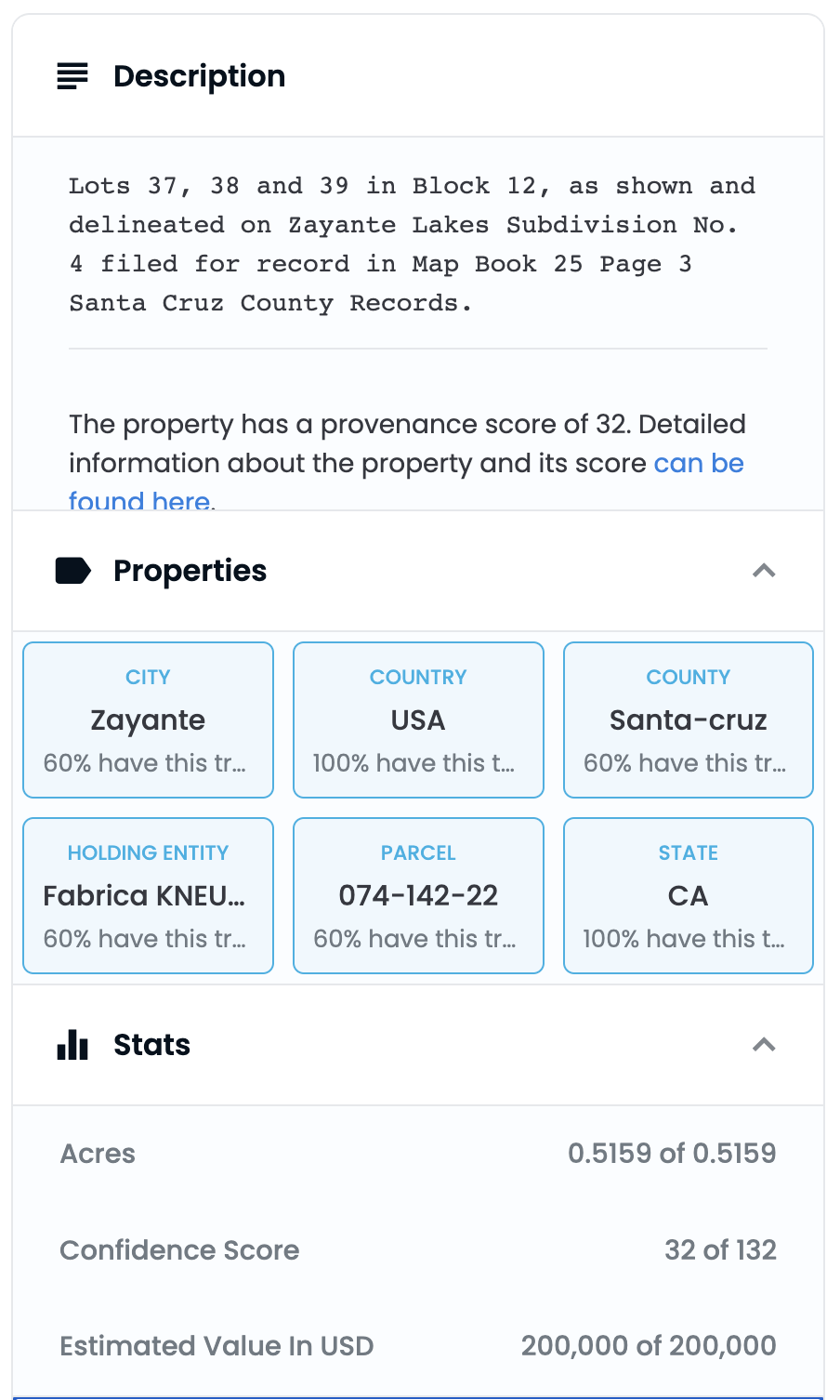Validators Overview
How validators verify property claims and maintain NFT integrity
NFTs and Claims are Verified by Validators
Validators make properties interoperable across the ecosystem
Validators play a critical role in ensuring the reliability and legal standing of property NFTs. They bridge the gap between onchain tokens and real-world property records.
Core Functions
Validators perform three essential functions:
1. Validate Property Claims
Validators inspect NFTs and cross-check the proof of title with local land registries using multiple validation channels:
- Web3 Validation: Checking onchain and IPFS data for consistency
- Local Jurisdiction Records: Verifying legal property descriptions and title
- Property Valuation: Consulting third-party valuation sources
2. Maintain Good Standing
Validators ensure the ongoing validity of the link between the digital token and the real property, including:
- Supporting reporting requirements
- Monitoring for changes in county records
- Flagging compliance issues
3. Generate Metadata
Validators create and update metadata for each property, drawing from:
- User-provided information
- External datasets (GIS, maps, satellite imagery)
- Local jurisdiction data

Example: Metadata provided by a validator on OpenSea
Validators may also approve or reject token transactions and operations, protecting the legal value and compliance of property NFTs.
Validation Process
Fabrica employs a comprehensive validation system that continuously verifies property information. Validation occurs at key moments:
- During issuance
- On transactions
- Periodically
- When triggered by external events
Web3 Validation
Checks onchain and IPFS data for updated information about the property and recalculates the confidence score. This includes verification of token base data from the blockchain and token definition/configuration from IPFS.
Local Jurisdiction Records Validation
Retrieves and verifies the legal description of the property from third-party land registry APIs, comparing it with the token definition stored in IPFS to ensure continued accuracy.
Property Valuation
Updates property valuation information from trusted third-party providers to maintain current market value data.
Multiple Validators
Multiple validators can operate in the same region, using different validation strategies and service levels. This diversity allows for:
- Competition and market pricing
- Independent opinions on the same NFT
- A choice of guarantees or insurance for users
Becoming a Validator
While token issuance is permissionless (anyone can technically issue tokens), validators must be registered to produce reliable confidence scores that are recognized by the ecosystem.
Currently, validator registration is managed by Fabrica. Organizations interested in becoming validators should contact [email protected].
In the future, validator registration will transition to decentralized governance, allowing the community to approve and manage validators independently.
For technical requirements, see Build Your Own Validator.
Updated about 1 month ago
